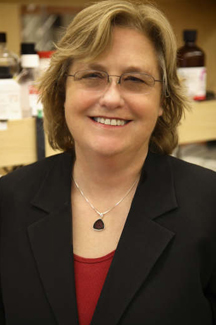Team Wins $1.7 Million to Develop Stem Cell Quality Control Methods
A team at The Scripps Research Institute (TSRI) has won a $1,784,000 grant from the California Institute for Regenerative Medicine (CIRM). The funding will support the development of a new method for detecting DNA damage in stem cells to ensure that only the highest quality cells are used in transplantation or therapy.
“Sometimes even the most promising therapy can be derailed by a tiny problem,” says Jonathan Thomas, chair of the CIRM Board, which voted to fund this and other proposals in the agency’s Tools and Technologies initiative. “These awards are designed to help find ways to overcome those problems, to bridge the gaps in our knowledge and ensure that the best research is able to keep progressing and move out of the lab and into clinical trials in patients.”
Professor Jeanne Loring, Ph.D., is principal investigator for the TSRI project.
“The technology we are developing is similar to that now used for diagnosing cancers,” said Loring. “In this case, the test—which is fast and simple to use—will enable researchers to detect abnormal cells in stem cell populations.”
Quality control is an important step to ensure the safety and efficacy of potential therapies using stem cells—which possess the ability to develop into many other distinct cell types, such as nerve, heart, or lung cells, and hold promise for repairing damaged tissue from a range of diseases and injuries.
One line of work funded by the new grant will focus specifically on quality control of potential stem cell therapies for Parkinson’s disease.
Another line of work, which includes members of Germany’s Federal Ministry of Education and Research, will develop methods for ensuring the reliability of drug screening using stem cells.
For more information, see CIRM’s press release.
Send comments to: press[at]scripps.edu














